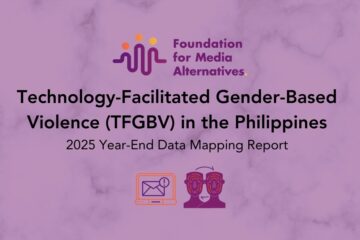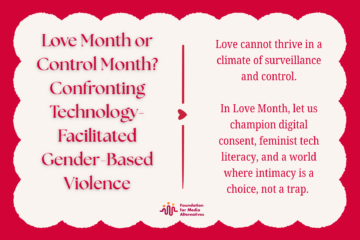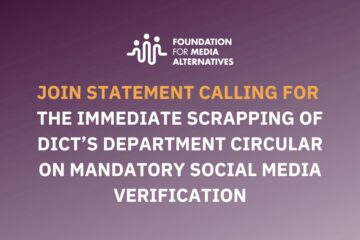The Info War Against Women in Politics: How Social Media is Weaponized Against Female Politicians, Journalists, and (Ultimately) Democracy
– Maria Ressa, Nobel Peace Prize winner of 2021, CEO and Executive Editor of Rappler
Amid coronavirus lockdowns, the Internet and social media have proved to be important tools for connecting with loved ones, staying informed about current events, and working/studying from home. However, Internet use in the coronavirus pandemic has also magnified existing inequalities that had persisted in the offline world. Research consistently shows that women are attacked online through harassment, abuse, and gendered disinformation campaigns at far greater rates than men. And this has greatly increased over the coronavirus pandemic. An emerging trend is the use of disinformation and defamation as a means to harm women online. In essence, these gendered disinformation campaigns spread false or misleading narratives to attack women for being female, for being online, and — quite often — for being politically outspoken.
Part 1 of the “Weaponizing Social Media Against Women” blog series explores in-depth what gendered disinformation is and what tactics are typically employed. (Read Part 1: Gendered Disinformation: Attacking Women for Being Female, Online, and Politically Outspoken)
Women in Politics are Constantly Targeted by Gendered Disinformation
Women in politics are no strangers to gendered disinformation and online abuse. An international study in 2016 reported that 42% of female parliamentarians have had humiliating or sexually charged images of them shared online. Female candidates in the 2020 United States Democratic Primaries received 10 times more abusive online comments than male candidates. Amnesty International reported that 1 in 7 tweets mentioning female politicians in India were problematic or abusive.
Women in public life are consistently attacked and talked about in six common patterns:
- Women are deemed unsuitable for politics, because they are portrayed as being devious agents who will secretly push hidden agendas.
- Women are denounced as being incapable, ineffective, and unintelligent political leaders.
- Women who call out harassment have their claims rejected and are subjected to more abuse.
- Women are distorted as overly sexual beings who will use their sexuality to get what they want.
- The “strong men” in politics are framed as the saviors and “real leaders” of the country, undermining women’s attempts to voice their opinions and claims to political positions.
- The values women hold are demonized as being “anti-government.”
The attacks Leni Rombredo, vice-president of the Philippines, faced exemplifies some of these patterns. She was fired in 2019 from her post as co-chair of the Inter-Agency Committee on Anti-Illegal Drugs. This happened days after President Rodrigo Duterte called her a “scatterbrain” not to be trusted with state secrets. His hostility is presumably in response to her openly criticizing the extrajudicial killings resulting from his war on drugs. She has since been frequently attacked online through the hashtag #FakeVP in conjunction with being called a “boba” (a gendered slur implying someone, usually a woman, is being stupid), “cheater,” “liar,” and “fraudulent monster b*****.”
Online abuse is misunderstood as being inevitable for politicians. But, research has shown again and again that female politicians are disproportionately attacked online and targeted by disinformation campaigns – on scales not experienced by men.
Female Journalists are Increasingly Silenced
In the Philippines, female journalists critical of the president are accused of being “yellow funded presstitutes” and portrayed as devious liars that deserve harassment and abuse. Maria Ressa, recent Nobel Peace Prize winner and founding CEO and Executive Editor of online news site Rappler, has regularly been called a “presstitute” and portrayed by pro-Duterte Twitter accounts as being “fake news.” These attacks mirror President Duterte’s outburst, who had publicly lashed out and called Rappler a “fake news outlet” sponsored by American spies.
Research on state-aligned gendered disinformation found that this is a common strategy. Often, abusive comments made by political leaders and actors are reported on in the news, which then become repeated online and disseminated further. In Ressa’s case, she received an average of 90 hate messages an hour and 2000 “ugly” comments on Facebook a day. She has also been repeatedly threatened with gang rapes and murder since 2016. In the middle of a disinformation campaign that deliberately misquoted Ressa, she had even received abuse and threats from active and former members of the Philippine military.
Ressa reflects on her experience: “It began a spiral of silence. Anyone who was critical or asked questions about extrajudicial killings was attacked, brutally attacked. The women got it worst. And we’ve realised that the system is set up to silence dissent – designed to make journalists docile. We’re not supposed to be asking hard questions, and we’re certainly not supposed to be critical.”
Gendered Disinformation is not just a “Women’s Issue”
As highlighted by Ressa’s quote, gendered disinformation and abusive comments have far-reaching effects with real world consequences. They negatively impact the individuals targeted, women in general, and even democratic institutions as a whole.
Online violence often occurs in parallel with offline violence, and gendered disinformation is employed as a tactic to legitimize violence in public life. An example of this is the red-tagging and arrest of Lady Ann “Icy” Salem, editor of Manila Today which is affiliated with the alternative news network AlterMidya. Her arrest follows statements by Allen Capuyan, executive director of the government’s anti-Communist task force, red-tagging several news organizations under AlterMidya without proof. More than just words, haphazard red-tagging remarks by government officials have fueled cyberattacks, harassment, death threats, as well as offline assaults, arbitrary arrests, and attempted murder of journalists throughout the Philippines.
Gendered disinformation aims to undermine women’s credibility and claims to decision-making positions, poses obstacles to electoral success, discourages women from pursuing political careers, and silences women in public discourse. Female politicians and experts interviewed in a 2019 global study were highly concerned that online gender-based violence will pose as a significant barrier to female political participation and will discourage young women from a political career. Indeed, many female MPs that stepped down from re-election in the United Kingdom cited online abuse as the main reason for leaving politics. For the women who do remain in politics, they often choose to distance themselves and disengage from social media, which harms their political effectiveness and limits their engagement with constituents. If gendered disinformation is normalized in politics, it will pose the political sphere as a “dirty” and violent field women do not have a place in, effectively pushing women out of politics altogether.
Dubravka Šimonović, UN Special Rapporteur on Violence Against Women, states: “The aim of violence against women in politics is to preserve traditional gender roles and stereotypes and maintain structural and gender-based inequalities… Ultimately, online violence against women in politics is a direct attack on the full participation by women in political and public life and their enjoyment of their human rights.”
Thus, what results is a chilling effect on freedom of expression, with more women self-censoring and a less representative, effective, and equitable democratic institution.
Summing It All Up:
- Women in politics are constantly targeted by gendered disinformation and attacked online in 6 common patterns.
- In the Philippines, journalists critical of President Duterte and his administration are brutally attacked; women got it the worst.
- Gendered disinformation and abusive comments have far-reaching effects with real-world consequences.
- Online violence often occurs in parallel with offline violence, and gendered disinformation is used as a tactic to legitimize violence in public life.
- A common strategy of state-aligned gendered disinformation is the repetition and amplification of abusive comments on social media made by political leaders and state agents.
- Gendered disinformation aims to undermine women’s credibility and claims to decision-making positions, poses obstacles to electoral success, discourages women from pursuing political careers, and silences women in public discourse.
In the final part of the “Weaponizing Social Media Against Women” blog series, learn how women themselves are tackling gendered disinformation and what social media platforms and governments need to do to better address the issue.
About the author:
This article is written by Sheila Lau, an intern from Canada working at the Foundation for Media Alternatives (FMA). Blog articles written by the author do not necessarily reflect the views and opinions of FMA.



0 Comments